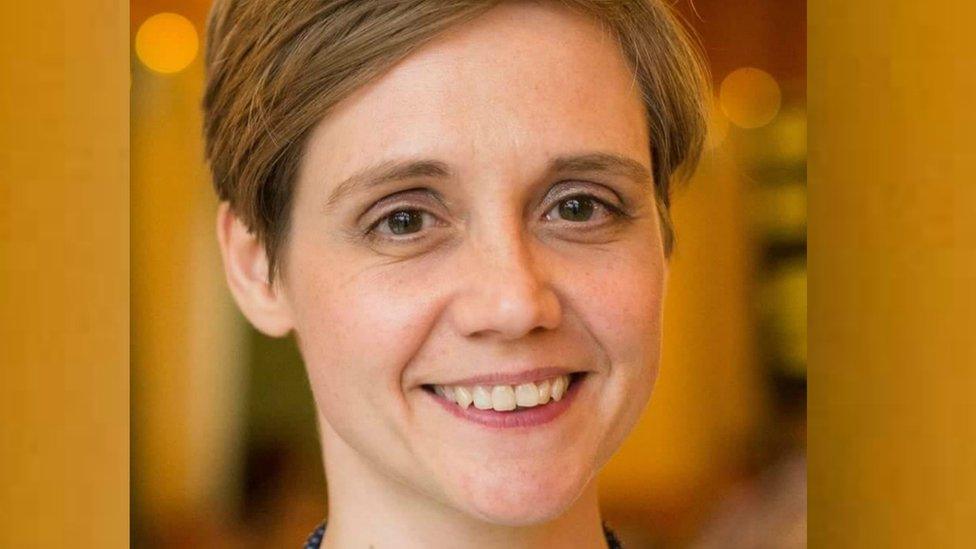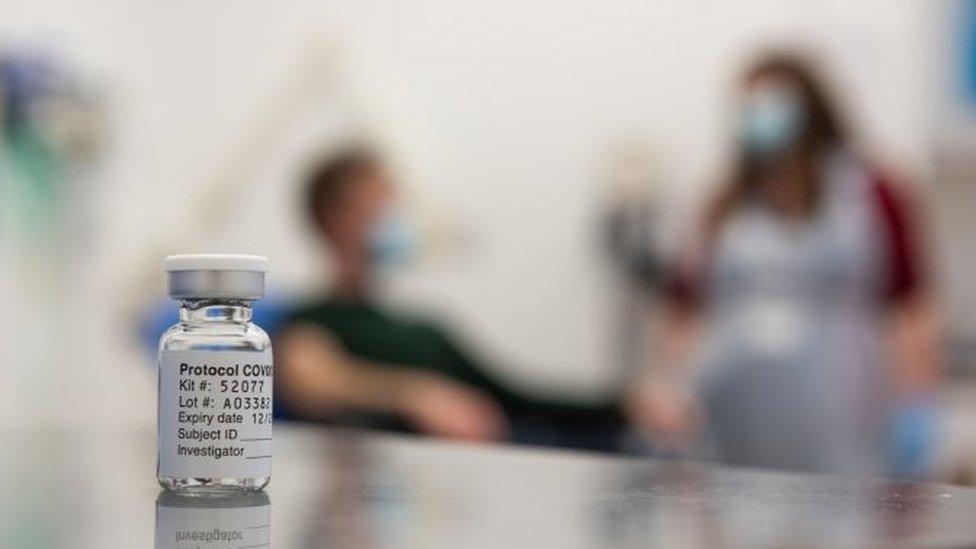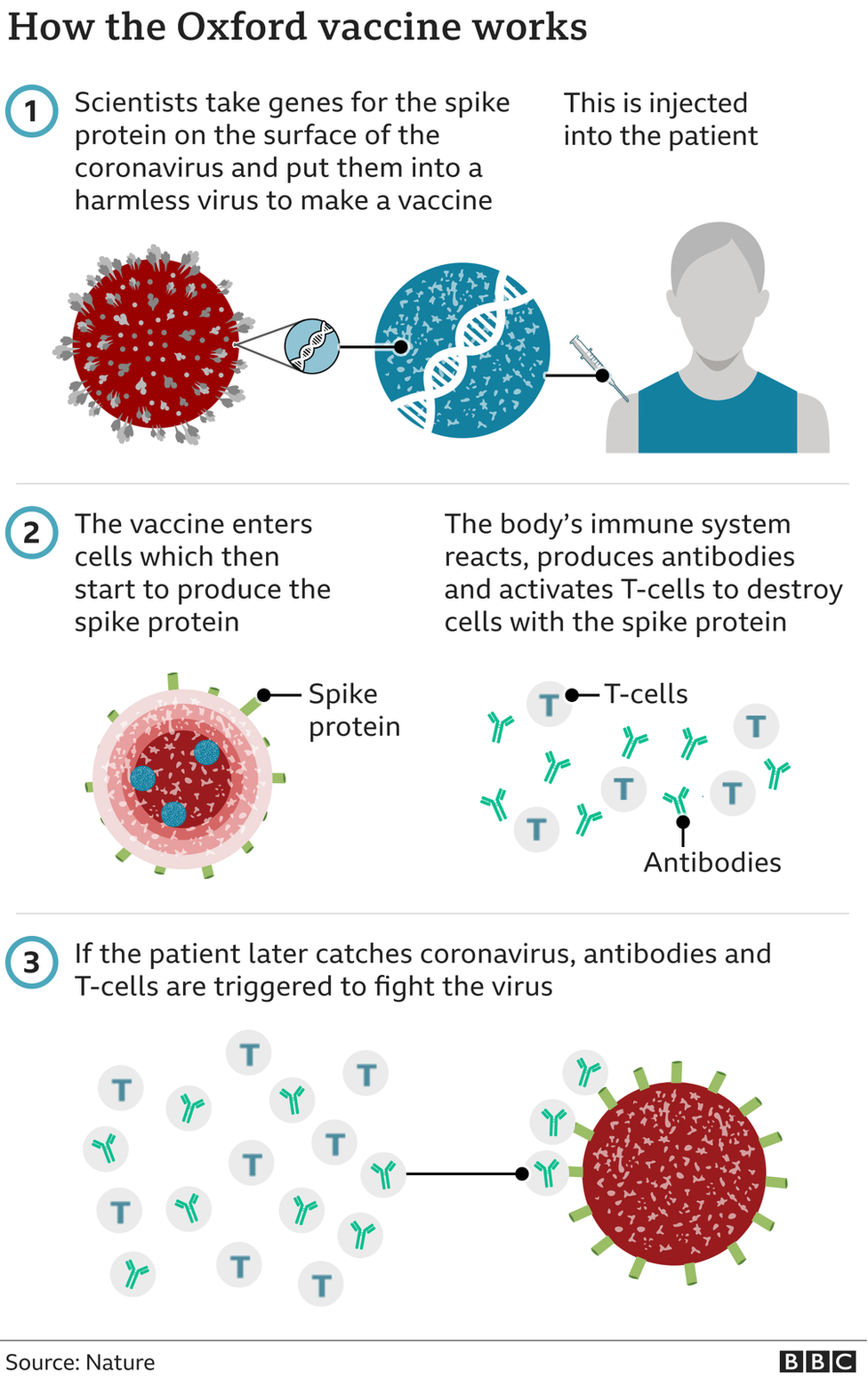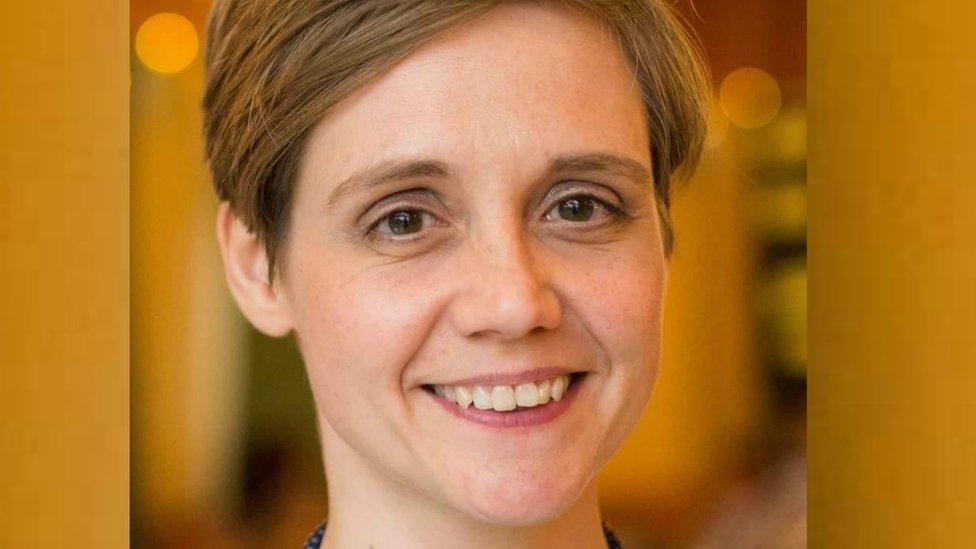Covid-19: Oxford-AstraZeneca team 'moved mountains'
- Published

Lydia Guthrie was one of 500 people taking part in the Oxford University project to test a potential vaccine
A participant in the Oxford-AstraZeneca coronavirus vaccine trials said being involved felt like being part of an "amazing human endeavour".
Lydia Guthrie was among 500 people who volunteered for the Oxford University research project in April after seeing an advert on social media.
She said she felt "proud" of their "unprecedented" achievement after the vaccine was approved on Wednesday.
Ms Guthrie added that the research team had "moved mountains".
The first doses of the Oxford-AstraZeneca vaccine are due to be administered to people from Monday amid rising coronavirus cases.
The UK has ordered 100 million doses - enough to vaccinate 50 million people.

Ms Guthrie said she took part in the vaccine trials because "putting it really bluntly, it just felt like the right thing to do".
"It felt like a tiny thing I could do to be part of an amazing human endeavour, trying to do something really constructive to support the whole community," she told BBC Breakfast.
Professor Adrian Hill, director of the Jenner Institute at the University of Oxford, said ahead of the trials the research team had "exceptional experience of a rapid vaccine response", such as to the Ebola outbreak in West Africa in 2014.

Ms Guthrie said "of course I felt nervous" when she volunteered, but added she believed the risk was small after reading the research information.
"I'm a mum, I've got teenage kids so I didn't want to do anything that would affect my health or put me at risk," she added.
"I felt as though I could trust the research team and the NHS because whenever I've needed the NHS in the past they have always been there for me."
Ms Guthrie said none of the participants know if they were given the Covid-19 vaccine or not during the trials.
Encouraging people sceptical of vaccines to "think where are you getting your information from and who is giving you advice", Ms Guthrie said: "Listen to your doctors, listen to the NHS."
"If you want to help out the NHS, if you're looking at the news and seeing the stories of hospitals being overwhelmed then taking up the vaccine is something really constructive that people could do to help the NHS when they really need it," she said.
- Published23 April 2020
